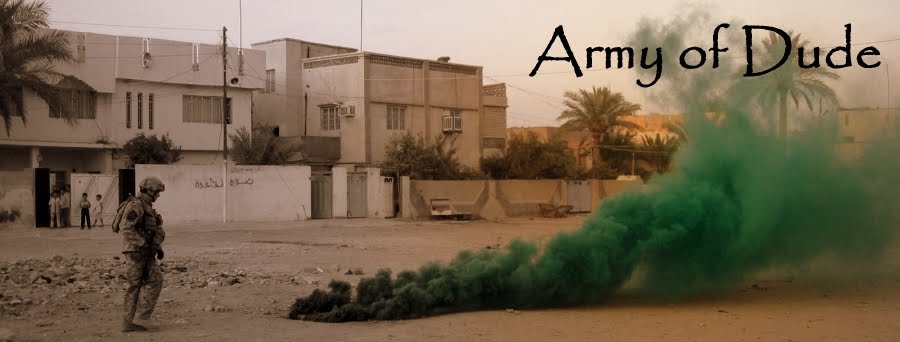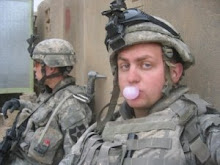Wednesday, February 28, 2007
Support Our Troops! Woo!
Walter Reed is the destination of the vast majority of wounded veterans of Iraq and Afghanistan. It's a care facility where both physically and mentally injured soldiers come for treatment. Amputees get fitted for prosthetic limbs and claims are filed to draw a disability check. Those suffering from post traumatic stress syndrome can find help in support groups or with medication. In a perfect world, there is an efficient system set up to handle all of this. Since September 11, soldiers have been revered as heroes in the eyes of the public. But those who have left their limbs and their mind on the battlefield, it's just another fight to get the care they deserve. I've read several reports on injured soldiers denied compensation because of their past medical history. For example, someone who was in an IED blast that damaged their knee would not get any money because that person had an old knee injury during their high school football days. They couldn't prove the disability was a result of the blast. This goes to show that anyone in control of money in the military will find any way to save pennies here and there. Unless, of course, they're dealing with contractors, where perpetual war means perpetual profits.
After the shit hit the proverbial fan regarding Walter Reed, the staff went into a frenzy about the ordeal, claiming the reports coming out were factual but unfair. Um, did I miss something? How can something be true but not fair? That's why it's called the truth, not 'what we want you to know.' It's not rose colored or tucked away neatly like the problems were before the Washington Post exposé. Immediately they began renovating the offending rooms, removing mold, repairing holes in ceilings and fixing leaky pipes. "It's not the Ritz-Carlton at Pentagon City, I'll grant you that," Lt. Gen. Kiley, the Army surgeon general said of the conditions. I wonder how humble his accommodations are. Citizens pay for both with their tax dollars, yet the ones actually coming from combat zones without their god damn arms and legs are living in sub par quarters. The money is there, obviously. It's just not being well spent. At this very moment, I'm up late at night in a heated bay in Taji, Iraq with an internet line hooked right up next to my bed. Tomorrow I have the option of either going to a well stocked chow hall or to one of several fast food joints, like Subway or Taco Bell. Down the street, KBR employees are getting paid very little to do our laundry as Dick Cheney, former CEO of KBR's parent company Halliburton, gets paid a six figure severance per year. Round and round the tax money goes, where it stops, nobody knows. Especially not Walter Reed.
That's not even the best part. Those undergoing care at Walter Reed have now been ordered to keep quiet about problems arising there since the coverage began (the delicious irony is that The Airforce Times, a military-ran publication, broke that story). As you can see in the article, sweeping under the carpet as taken action as a first sergeant and twenty platoon sergeants were reassigned, with 120 new permanent soldiers expected to arrive mid March. That, unfortunately, will not solve the problems. A budget analysis and retooling is needed, along with granting VA hospitals like Walter Reed a bigger budget. In the Senate there will be those wondering where all that money is going to come from. Try by closing down every Pizza Hut and Cinnabon in Iraq. Then fine KBR every time they overcharge the government, which apparently is all the fucking time. There, budget problems solved. Now that I fixed the crisis, I just ask for a humble lieutenant general's quarters. Just don't put me close to Walter Reed so I don't smell the mold and decay.
AH
Saturday, February 24, 2007
Questions Answered
Nearly eight months into a year long deployment, I still get asked the most basic questions by those back home in
First, ‘day to day’ is a little difficult to define. In
AH






